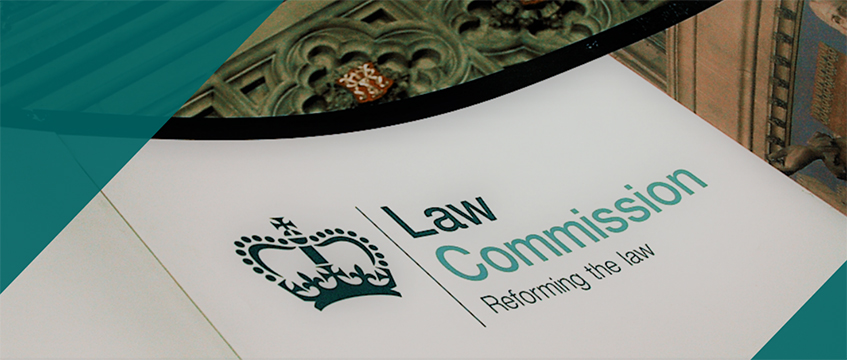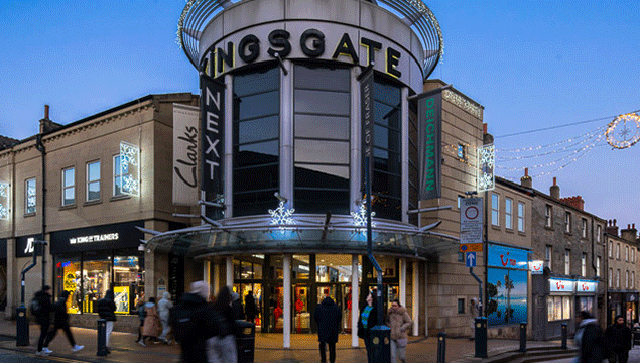Next time you pass what looks like a vacant building, pause and have a closer look; it may not be as empty as first appears.
That’s because owners of vacant offices, warehouses, day care centres, pubs, libraries and other buildings are increasingly turning to guardian companies to defend, protect or otherwise keep their property safe while it lies idle.
With large numbers of vacant properties across the UK, empty buildings are becoming an economic strain for owners who need to insure, maintain and otherwise hold onto their asset while they try to sell, lease or redevelop it.
That’s where guardian companies come in. They property manage the building by filling the empty space with people in need of affordable housing and in return collect a licence fee from the renters and usually a small fee from the owner.
How does it work?
Camelot Europe, the largest property guardian company in the UK, was first to the local market in 2002 when it brought its Dutch business model, founded in the Netherlands in 1993, to London.
The service was initially offered as an anti-squatting measure, but has since evolved to include protecting against a range of threats including vandalism and dilapidation, according to Stephen Davies, Camelot Europe’s business development officer.
Today, Davies’ firm has approximately 2,000 guardians in the UK currently caretaking more than 500 buildings. Some of the very large properties have more than 200 guardians in residence at any one time.
Deterring squatters remains central to the protection afforded by property guardians. Squatting residential properties is a criminal offence, but commercial property squatting is still a civil matter.
“If your property is vacant and squatted you need to go through the expensive legal process,” Davies explains. “But if you occupy a building using a live-in guardian solution it is no longer vacant or unoccupied, so attempts to squat it become a criminal matter, exactly the same as if someone broke into your home while you were at work.”
As margins get tighter, a live-in guardian can help maintain schedules, he says. “If a building is damaged or destroyed it will affect plans for redevelopment or disposal,” Davies says. “If they’ve lost control of a site through squatting, vandalism or damage, then it’s a huge delay and a huge cost to them.”
What is protected?
The Nottinghill Housing Group has been using live-in guardians to secure former halls of residence in Ealing since January.
Debs Strawbridge from the group says the more 200 guardians in residence provided by Camelot Europe is a cost effective solution compared to the expense of using a security guard.
“The scheme in Ealing is an absolutely prime target for squatters, it’s 138 potentially empty units in a quiet residential area so it’s a big risk,” Strawbridge says.
The flexibility of the arrangement is also appealing. Nottinghill Housing Group plans to begin refurbishing the site for market rent soon.
“Camelot will stay in some of the units,” Strawbridge says. “The contractor will take possession of part of the site and there will be a rolling programme of refurbs with Camelot moving out on a bit by bit basis.”
Away from Ealing, Davies’ firm is also protecting the Grade II-listed Middlesex Hospital on Cleveland Street, W1, also known as the Cleveland Street Workhouse and owned by University College London. The property, which was used as a hospital building until 2005, has housed about 20 guardians for the past four and a half years, while the owner sorts through planning issues.
“The majority of the buildings we deal with, probably 80-85% are commercial,” Davies says. “That includes former care homes , which have a residential feel but are commercial properties. The majority are offices, schools, hospitals.”
And while London is the largest market, Camelot has five offices around the UK in Bristol, Birmingham, Manchester and Glasgow.
Gavin Hanesman, of Guardians of London, which began providing live-in guardian services two and a half years ago, has seen demand increase.
“The growth has been fantastic,” he reflects. “We’ve signed up some housing associations, we work with a couple of councils, we have quite a few private landlords who come and go depending on what properties they have at the time.”
The business model
Guardian companies typically make their money from the licence fees they collect from their tenants. In most cases, they also charge a smaller fee to the property owner, although exact arrangements differ from company to company as do costs.
Camelot Europe typically charges its live-in guardians £30 to £70 a week in licence fees inclusive of all bills and property owners £30 to £80 in management fees, although in some cases it’s a cost neutral arrangement for owners.
“The guardians pay a quarter of the going rate,” Davies explains. “But it’s difficult to say what the going rate is for a fire station, for instance.”
It’s a situation that makes sense to many owners, especially if they are currently paying £2,000 a week for a security guard.
There are other costs associated with making a building habitable for guardians. As a minimum properties must be wind and water tight, have a water supply and electricity.
The guardian company can advise on the installation of a self-contained shower pod, while the tea point in an office building could be a perfectly suitable kitchen area.
These costs to the property owner can vary, Davies says, ”from just a few hundred pounds to change locks up to the most horrendous squat I’ve ever seen which maybe was £10,000 pounds, it depends on what we find.”
What’s provided
Guardians must bring their own furniture and typically that means bed, wardrobe, TV, microwave or oil filled electric radiator, if there’s no central heating.
“Some guardians will bring more stuff and take a gamble they may be remaining for a time,” Davies says, adding that some long term guardians have re-carpeted floors and painted walls with the owners okay.
Guardians have to pass an extensive vetting process in order to register with an accredited guardian company, which is why key workers, who have already passed such tests, are favoured by many companies.
Meet a guardian
Simon Kampta, 44, has been a property guardian for just over a year. In that time, he has lived in two properties. His current home is a large former classroom in a now vacant child care centre in North West London, where he was placed by Guardians of London.
Kampta, an administrator with the NHS, says he values the quality of the accommodation and its affordability.
“That’s one of the reasons I am a guardian, the quality of the accommodation is high, it might need a bit of work, but there’s the sheer size of it.”
Kampta pays £100 a week inclusive of all bills. “It’s really cheap, but it’s not the cheapest. Some people pay £50 to £55 a week depending on the size and condition of where they are.
“Another benefit is meeting new people. I’ve lived with social workers, actors, musicians.
“Plus you get really interesting buildings to live in,” he says. “I’ve got friends who live in an office building in Southwark with views of St Pauls – it’s really quirky; other friends are in an amazing old school on top of a hill in Pekham. It’s fantastic.
But it’s not always easy for property guardians. They never know when they’ll have to move on and may have to deal with onsite maintenance themselves.
“Owners tend to try to limit the amount that’s spent on the property while it’s vacant,” Kampta says. “The guardian company doesn’t want to spend money on it either so it comes down to us.”
“It’s very self-serving and luckily enough we have people here who can help out, but that’s one of the things you need to be aware of. Sometimes you’ve got to look at what you’ve got and be quite creative with it.”
Running on empty
Have a vacant building and want to make some money out of it? It’s possible, but of course depends on the property type.
Camelot Europe recently launched the Make Space Pay scheme which is tasked with generating income for clients with vacant buildings, for example, by renting it to out for film and photography shoots, functions, team building activities and everything in between, says Davies.
“It’s something we’ve developed over the past few years because people know the unusual buildings we look after from fire stations to warehouses and we were being contacted from time to time by film companies and others asking to use the space.”
It can also be a good way of generating publicity for a property owner. Camelot Europe facilitated the use of the Former British Library storage warehouse in E1 for use by the charity Elephant Family which accommodated the painting and storage of 200 large elephant sculptures subsequently distributed across London and other cities.
“It was a slight variation on Make Space Pay as I don’t know that it generated a lot of income but it generated some great publicity for both causes.”











